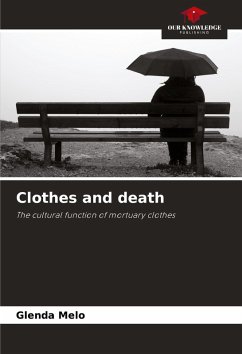This work is an anthropological study of the function of mortuary clothes in our culture. The importance of this study lies in increasing our understanding of our attitudes and behaviour in relation to clothing. Another aspect that reflects the importance of this study is the need for anthropological research dedicated to problematising issues relating to clothing. The functionalist theory developed by Malinowski was adopted as the theoretical-methodological framework and the free non-organised interview was used as the research instrument. The interviews were carried out with seamstresses who were born between the 1920s and 1940s and who live in the city of Ituverava (in the interior of São Paulo). The date of birth and location stipulated aimed to identify women who became economically active at a time and in a region when the vast majority of clothes were produced by local seamstresses due to the absence of clothing industries.
Bitte wählen Sie Ihr Anliegen aus.
Rechnungen
Retourenschein anfordern
Bestellstatus
Storno








